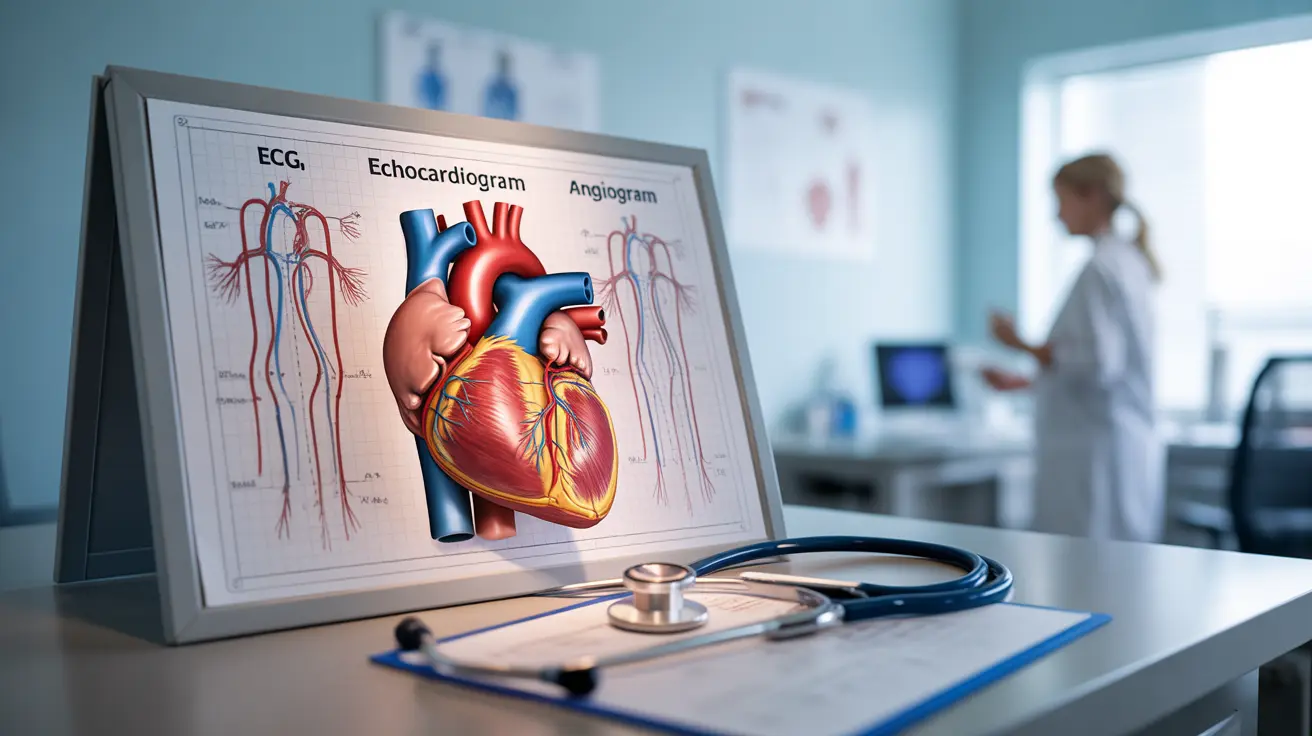When it comes to diagnosing heart disease, medical professionals rely on a comprehensive array of tests and examinations to accurately assess heart health and identify potential cardiovascular issues. Understanding these diagnostic procedures can help patients feel more prepared and informed about their healthcare journey.
From non-invasive tests like electrocardiograms to more complex procedures such as coronary angiograms, each diagnostic tool plays a crucial role in identifying different aspects of heart disease. This guide will explore the various methods doctors use to diagnose heart conditions and explain when each type of test might be necessary.
Initial Physical Examination and Medical History
The diagnostic process typically begins with a thorough physical examination and detailed medical history review. During this initial assessment, your doctor will:
- Listen to your heart using a stethoscope
- Check your blood pressure and pulse
- Examine for signs of fluid retention or swelling
- Discuss your symptoms, lifestyle factors, and family history
- Review your current medications and supplements
Non-Invasive Diagnostic Tests
Electrocardiogram (ECG/EKG)
An electrocardiogram is often the first diagnostic test performed when heart disease is suspected. This non-invasive procedure measures the electrical activity of your heart, helping doctors identify:
- Irregular heart rhythms (arrhythmias)
- Signs of previous heart attacks
- Current heart damage or stress
- Abnormal heart chamber size
Advanced Imaging Tests
Several sophisticated imaging technologies provide detailed views of the heart's structure and function:
- Echocardiogram: Uses ultrasound to create real-time images of your heart
- Cardiac CT scan: Provides detailed cross-sectional images of your heart and blood vessels
- Cardiac MRI: Offers highly detailed images of heart structure and blood flow
- Nuclear stress tests: Show blood flow patterns to your heart during rest and exercise
Laboratory Testing and Blood Work
Blood tests are essential for diagnosing heart disease and assessing heart damage. Key tests include:
- Cardiac enzyme tests (including troponin levels)
- Cholesterol panel
- Complete blood count
- C-reactive protein test
- B-type natriuretic peptide test
Specialized Diagnostic Procedures
Stress Tests
Exercise or pharmacological stress tests help doctors understand how your heart functions under physical stress, revealing:
- Blood flow problems
- Irregular heart rhythms during exercise
- Exercise capacity and limitations
- Effectiveness of current treatments
Invasive Diagnostic Procedures
When non-invasive tests don't provide sufficient information, doctors may recommend more invasive procedures:
- Coronary angiogram (cardiac catheterization)
- Electrophysiology study
- Myocardial biopsy
Frequently Asked Questions
- How is heart disease diagnosed through medical tests and examinations?
Heart disease is diagnosed through a combination of physical examination, medical history review, and various diagnostic tests. These may include ECGs, imaging tests, blood work, and stress tests. The specific combination of tests depends on your symptoms and risk factors.
- What does an electrocardiogram (ECG or EKG) show in diagnosing heart disease?
An ECG records the electrical activity of your heart, showing heart rhythm abnormalities, signs of previous heart attacks, current heart damage, and problems with heart chamber size or position. It's often the first test performed when heart disease is suspected.
- When and why would a doctor order imaging tests like echocardiograms, CT scans, or MRIs for heart disease diagnosis?
Doctors order these imaging tests when they need detailed views of heart structure and function. These tests are particularly useful for identifying valve problems, examining blood flow patterns, assessing heart muscle damage, and evaluating blood vessel blockages.
- What blood tests are used to detect heart disease and assess heart damage?
Common blood tests include cardiac enzyme tests (particularly troponin), cholesterol panels, complete blood counts, C-reactive protein tests, and B-type natriuretic peptide tests. These help assess heart damage, inflammation, and risk factors for heart disease.
- What are invasive diagnostic procedures like coronary angiograms, and when are they needed to diagnose heart disease?
Invasive procedures like coronary angiograms are typically recommended when non-invasive tests don't provide sufficient information. These procedures offer detailed views of blood vessel blockages and heart function, and are usually performed when serious heart disease is suspected or before certain treatments are planned.




